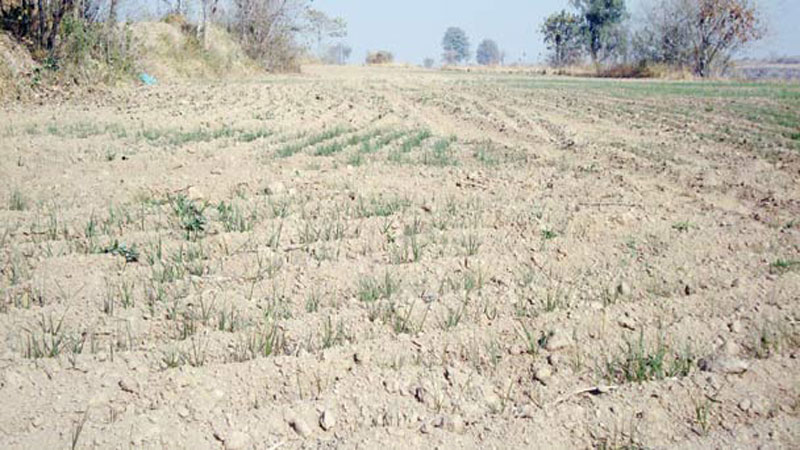 LARKANA: Sever water scarcity had delaying the sowing of the country’s main cash crops, including rice, and has propelled the Irrigation department officials in a bid to change the course of drains in Rice Canal to ensure water supply for the rice growers of upper Sindh.
LARKANA: Sever water scarcity had delaying the sowing of the country’s main cash crops, including rice, and has propelled the Irrigation department officials in a bid to change the course of drains in Rice Canal to ensure water supply for the rice growers of upper Sindh.
Reportedly, this Kharif period, the water scenario has produced alarming differences as confirmed by the irrigation officers that 6,200 cusecs of water flow has been recorded as compared to 17,000 cusecs of usual flow in the Rice Canal.
The poor rice growers were awaiting water supply in many water channels while most of them have not even sown paddy saplings.
According to the Water Apportionment Accord of 1991, water was to be supplied in the Rice Canal by the end of May or during the first week of June, in case of water scarcity.
However, this year, the supply has been delayed indefinitely while there is insufficient amount of water being discharged in the Rice Canal.
The rice growers revealed that from the total of 10,800 cusecs of water that was being discharged into Rice Canal from Sukkur Barrage, 4,600 cusecs was channeled to Warah Branch, an irrigation canal, via Ruk complex.
While expressing grief, they said that they would be ruined if sufficient amount of water was not provided to the rice crops and there would be significant decline in paddy cultivation.
“Only 10 percent paddy saplings have been sown while the total area allocated for rice cultivation is nine lakh acres,” they added.
“Water is discharged into Rice Canal in the month of May, and it remains empty after October 22 annually,” they said.
Meanwhile, the Sindh Chamber of Agriculture president Siraj-ul-Oliya Rashdi asserted on Monday that the agriculture minister Khair Muhammad Junejo has been informed regarding the critical water crisis in the region during a meeting held in Tando Jam.
“If paddy cultivation is affected, it would create many issues including relating to law and order situation, mass migration of people from rural region to urban cities and a major economic setback,” he said while criticising the former government for not addressing the issue effectively.
“We don’t need dams, instead we need an adequate water management strategy with justifiable distribution of water among the provinces and with accordance to international standards,” he maintained.
He said that he sent an application to the Chief Justice of Pakistan, apprising him about the water scarcity in Sindh during his recent visit to Larkana.
Published in Daily Times, July 17th 2018.